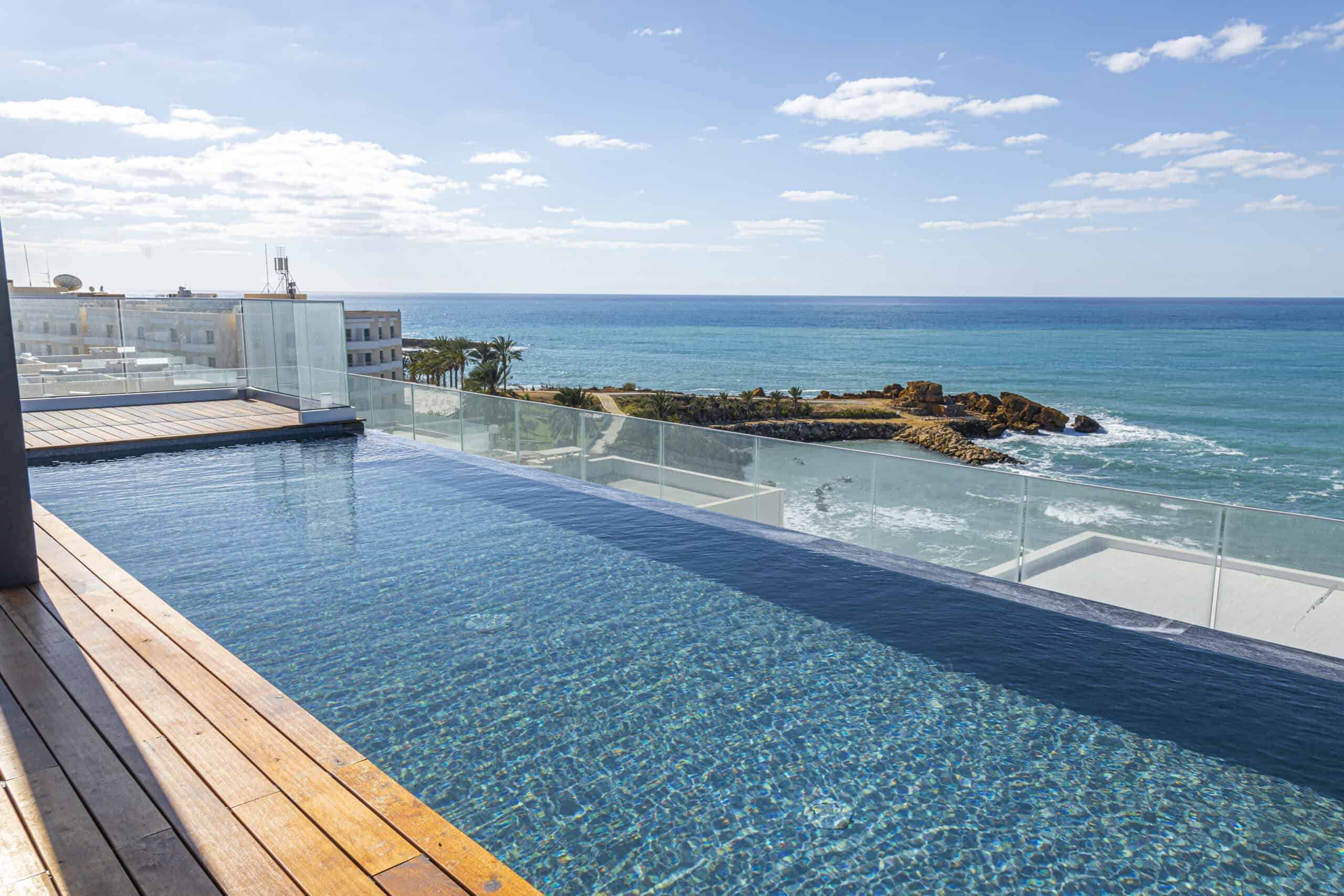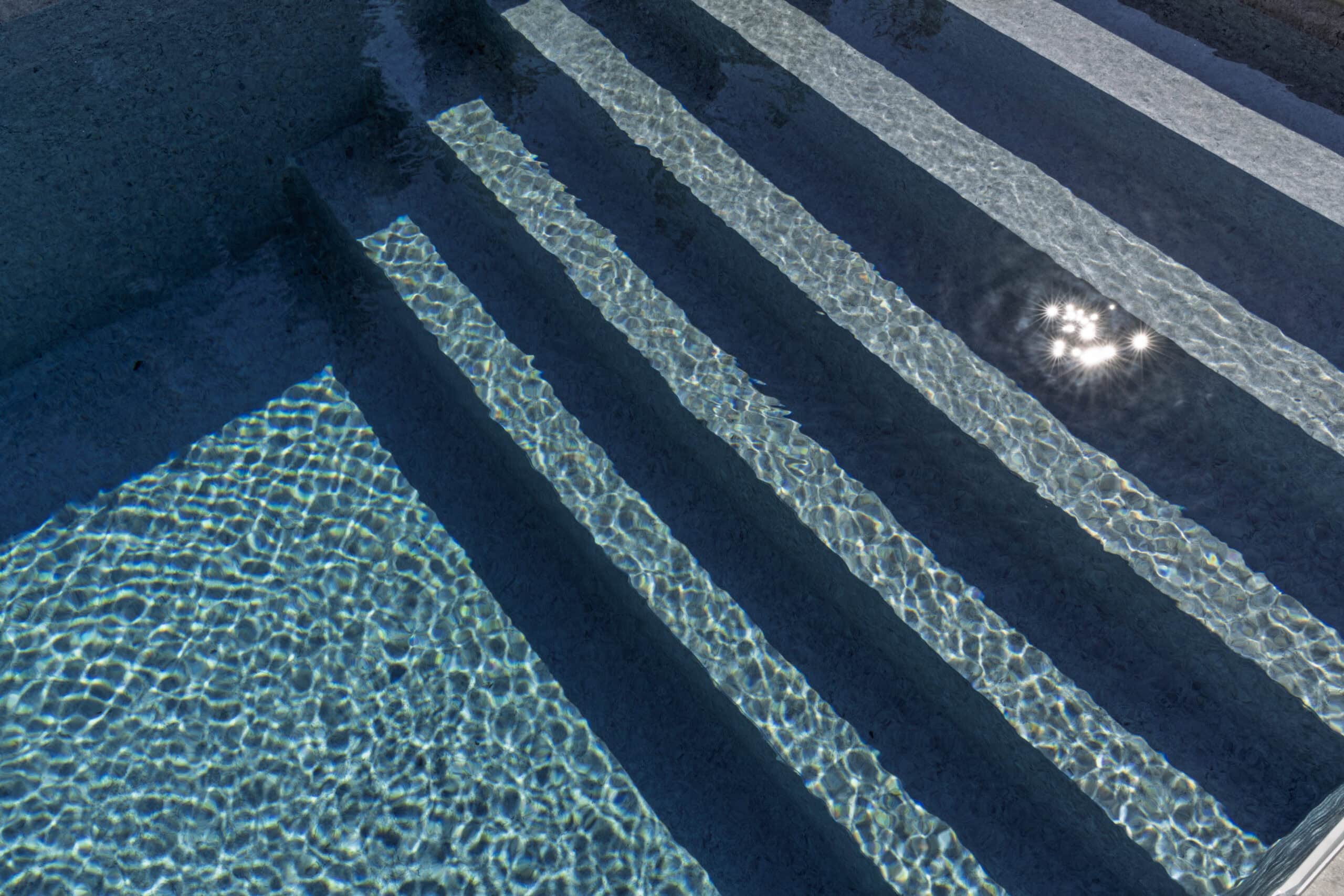
Swimming pools are built for relaxation, leisure, and fun, but they only stay inviting with the right care. Whether your pool is part of a hotel spa, a family backyard, or a large construction project, one essential step in pool service is testing the water. Without it, your investment and swimmer safety are at risk. In this article, you’ll learn how often to test pool water, what to check, and how to protect your pool in Cyprus or anywhere else.
Swimming Pools: Why Testing Matters
Swimming pools are more than a luxury-they’re a carefully designed field of balance between chemicals, water quality, and user comfort. If you ignore testing, you risk:
- Water that looks uninviting and unsafe
- Damage to pool equipment
- Higher costs in the long term due to neglect
- A shorter lifespan for the overall construction
For any project, whether residential or commercial, the ability to deliver a clean, safe pool comes down to regular checks.
Pools: How Often to Test
Most pools should be tested at least 2-3 times a week. Here’s how to choose the right schedule:
- Light use: Twice a week is usually enough.
- Heavy use or events: Test daily after large gatherings.
- Weather shifts: In hot Cyprus summers or after heavy winter rain, test more often.
- Chemical feeding device users: Confirm daily that chlorine levels remain stable.
This frequency helps you maintain a consistent level of sanitizer while protecting your pool investment.
What to Test in Pool Water
Chlorine
The heart of pool sanitation. Keep free chlorine between 1-3 ppm to ensure germs are destroyed while swimmers remain comfortable.
pH Balance
Aim for 7.2-7.8. Out-of-range water damages equipment and makes chlorine less effective.
Total Alkalinity
Keeps pH stable. Recommended range is 80-120 ppm.
Calcium Hardness
Essential to avoid scaling or etching. Test monthly to ensure the right design balance.
Cyanuric Acid (CYA)
A stabilizer that protects chlorine from UV rays in sunny climates like Cyprus.
Options for Testing Pool Water
- Test Strips: Quick and easy for routine checks.
- Liquid Kits: More accurate, suited for detailed work.
- Digital Testers: Convenient and tech-friendly for consistent results.
- Pool Store Service: Many stores offer detailed analysis and extra details about water care.
Each option provides a way to confirm your pool water is safe. The right choice depends on your experience and how much time you want to dedicate.
Chemical Feeding Devices and Consistent Levels
Installing a chemical feeding device can make pool management simpler. These systems automatically distribute chlorine, helping you maintain a consistent level throughout the pool.
But don’t assume this device does all the work. Testing is still required to:
- Verify proper function
- Adjust dosage
- Spot issues early
Think of it as a guarantee that your system is working as intended.
Seasonal Considerations: Summer vs. Winter
Pools in Cyprus and similar climates face unique challenges:
- Summer: High sun and leisure demand increase chlorine use. Test more often to protect your pool water.
- Winter: Even if the pool isn’t in use, off-season maintenance is part of the project. Testing monthly prevents damage and ensures the pool is ready when the season starts.
Proper year-round testing offers guarantee of water balance, saving you from costly surprises.
Designing a Testing Schedule
Here’s a clear step-by-step routine:
- Starting Point: Test chlorine and pH 2-3 times per week.
- Weekly: Add alkalinity tests.
- Monthly: Include calcium hardness and stabilizer.
- Seasonally: Get a professional check with full details before opening or closing.
By following these terms, you create a pool design that ensures clarity, safety, and longevity.

FAQs About Pool Water Testing
1. Do swimming pools need testing in winter?
Yes. Even unused pools should be checked monthly. Testing during winter protects the equipment and ensures easier reopening in spring.
2. Can I rely only on a chemical feeding device?
No. While it helps deliver chemicals, you must test to confirm the device maintains the right balance. It’s a supportive tool, not a full solution.
3. How do I choose the best testing method?
It depends on your experience. Beginners may choose strips, while advanced owners or those managing large projects prefer digital or liquid kits.
4. What happens if I don’t test water regularly?
Untested water can lead to algae, unsafe swimming, and costly equipment repairs. Testing is a simple step that saves time and money.
5. Should pools in Cyprus be tested more often?
Yes. The hot climate increases chlorine loss, making frequent checks essential to protect your pool water and extend pool service life.
Conclusion
Regular testing is the foundation of clean, safe, and enjoyable swimming pools. Whether you own a private backyard pool, manage a spa, or oversee a large construction project in Cyprus, the routine remains the same: test often, adjust chemicals, and deliver balanced results. With the right options, friendly tools, and consistent effort, you can protect your pool, extend its life, and guarantee endless fun and relaxation.
Ready to take the next step? Establish your testing routine today and enjoy sparkling water all season long.
